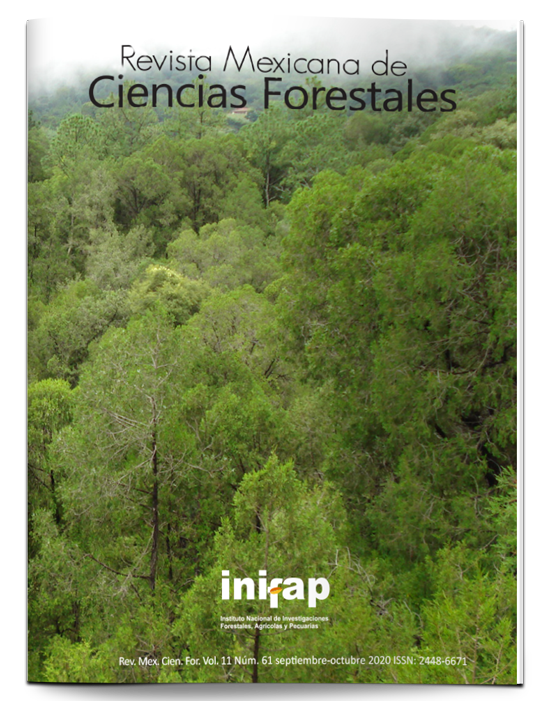Brosimum Alicastrum Swartz as an alternative for the productive reconversion of agrosilvopastoral areas in Campeche
DOI:
https://doi.org/10.29298/rmcf.v11i61.722Keywords:
Adoption, principal component analysis, Ojuch, Ramón, land tenure, GISAbstract
Research has been generated on the nutraceutical properties of the Ramón tree (Brosimum alicastrum) for animal and human feeding, medicinal uses and even production systems. However, it remains as a species with natural distribution and no forestry management. Because of this, the objective of the present work was to analyze the economic-social, physiographic and production factors that condition the conversion to Ramón tree plantations in the state of Campeche. By means of a sampling directed to the zones with a greater cover of the species, 190 farmers of the sectors of agricultural (94), livestock (58), forestry (17) and apicultural (21) sectors were surveyed between September and November, 2018. The results indicate that the age, schooling and family economic income represented by the current production systems do not condition the conversion. On the other hand, the factors that most restrict this conversion are associated with the freedom to make decisions regarding their plots (land tenure), access to the areas where the Ramón tree is distributed naturally, and the lack of technological packages for the production and post-harvest of the species. The producers with greater willingness to convert are the farmers and livestock breeders: the former, encouraged by the sales price of 1 kg of seed ($ 23.00 MXN), and the latter, seeking to find alternative fodder at a lower cost. In both cases, technical advice and training would help to minimize the period of adaptation to the new production systems.
Downloads
Published
How to Cite
Issue
Section
License
The authors who publish in Revista Mexicana de Ciencias Forestales accept the following conditions:
In accordance with copyright laws, Revista Mexicana de Ciencias Forestales recognizes and respects the authors’ moral right and ownership of property rights which will be transferred to the journal for dissemination in open access.
All the texts published by Revista Mexicana de Ciencias Forestales –with no exception– are distributed under a Creative Commons License Attribution-NonCommercial 4.0 International (CC BY-NC 4.0), which allows third parties to use the publication as long as the work’s authorship and its first publication in this journal are mentioned
The author(s) can enter into independent and additional contractual agreements for the nonexclusive distribution of the version of the article published in Revista Mexicana de Ciencias Forestales (for example, include it into an institutional repository or publish it in a book) as long as it is clearly and explicitly indicated that the work was published for the first time in Revista Mexicana de Ciencias Forestales.
For all the above, the authors shall send the form of Letter-transfer of Property Rights for the first publication duly filled in and signed by the author(s). This form must be sent as a PDF file to: ciencia.forestal2@inifap.gob.mx
This work is licensed under a Creative Commons Attribution-Noncommercial 4.0 International license.






